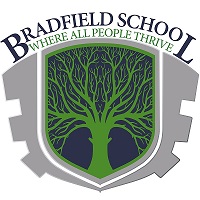Aiming High

“Failure is Success in Progress” – Einstein
At Bradfield, we have a high number of high prior attaining children : over a quarter of our students over the five-year groups fall into this category.
One of the tranches in Bradfield’s school improvement plan this academic year is developing the progress of those students who have the highest prior attainment. For most year groups, this is flagged by the SATs scores, whereby scores in the 110 – 120 bracket signal that students should be aiming ultimately for level 7+ scores in their GCSEs, and for those year groups who did not take SATs due to the pandemic, the CATs tests we did in Year 7 provide a similar benchmark.
Education, quite rightly, focuses on trying to remove barriers to learning for all students, and having high expectations for all. High prior attaining (HPA) students are no different in this regard. Nationally, in England, there has been no high ability governmental strategy since 2010, as there is in Scotland, Northern Ireland and Wales, and therefore little external support to tap into. Our high ability strategy has been rolling out since the summer term last year.
So far, we have:
- taken the voice of a number of our HPA students
- changed our lesson observation protocols to include HPA students as a specific cohort, focusing on the impact of the lesson activities on their learning
- met with all the Year 11 HPA students in this cohort whilst they were in Year 10 to explicitly share with them their potential, bringing in an outside speaker and getting them to consider what is needed for Russell Group universities
- delivered a programme of masterclasses to Year 11 HPA students, which are lecture or seminar in style giving a taste of post 16 and university approaches in English, Maths, Science, History and Geography
- delivered cross Trust staff training on approaches to working with HPA students
- begun a trial with 14 Year 9 students working with 'The Brilliant Club' to complete an age-appropriate university style dissertation
- brought in external scrutiny of our high ability approach from Learn Sheffield
In December, Subject Leads also agreed a specific approach to bring into every lesson, to support challenging HPA students who, too often, with the best of intentions to ensure understanding, can still be held back in the classroom. This is to have a hinge task or question each lesson to glean students’ understanding or application, being able to move them on to something different and more complex. Almost 60% of lessons observed in the Autumn term showed staff were already trying in their approaches to ‘set the high ability free’, as we have coined the phrase, and the intention is to move to this in 100% of lessons. This is not a limiting approach, and we are finding that many of our lower or middle prior attaining students are rising to the challenge.
Plans for the remainder of this year are to:
- promote the new books in the library, adult reading ages that are still teen appropriate
- finish the Year 11 masterclasses and roll these out to Year 10 in the summer term
- give a taster of GCSE style study in a foreign language to Year 9 students
- develop and embed the ‘hinge task’ pedagogical approach in all lessons
- explicitly discuss their potential with all HPA students in all years, exposing them to the Russell Group universities to raise their expectations.
How can parents and carers support HPA students (and those who want to achieve the highest outcomes)?
There are two common barriers to overcome.
The first is where students are happy to ‘settle’ for level 5s – the grades that ensure many post-16 doors don’t close – but that don’t help them to stand out post-18. Indeed, level 6s or above are the usual entry requirements in the subjects chosen at A Level in many sixth forms. As a school, and as parents / carers, continually talking about not settling is therefore key.
The second is how students so used to being able to ‘do’ whatever is in front of them, can feel failures when they have to work at something. Again, as a school, and at home, reframing struggle as healthy and how we learn is an important mindset to inculcate for all. As the initial quotation from Einstein notes, “Failure is success in progress!”
If you have a HPA child, you may be interested in some of the following resources to look at with your child at home, whilst at school, we are continuing to work on setting the high ability free.
Deborah Banks
Deputy Headteacher
